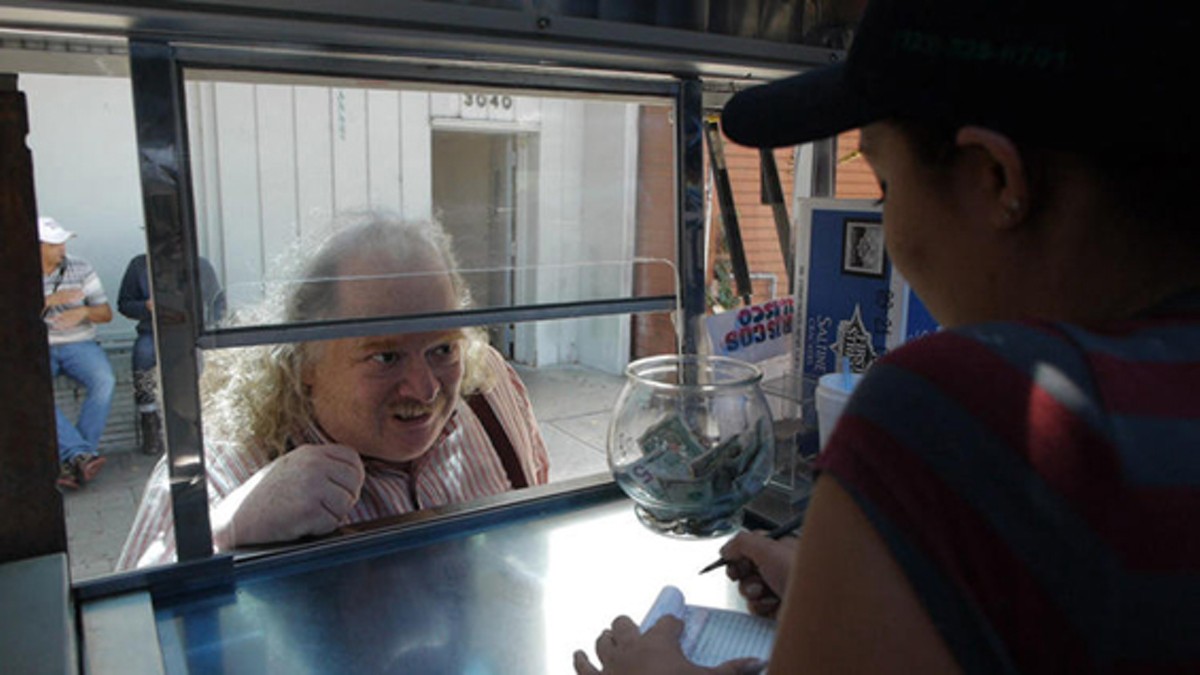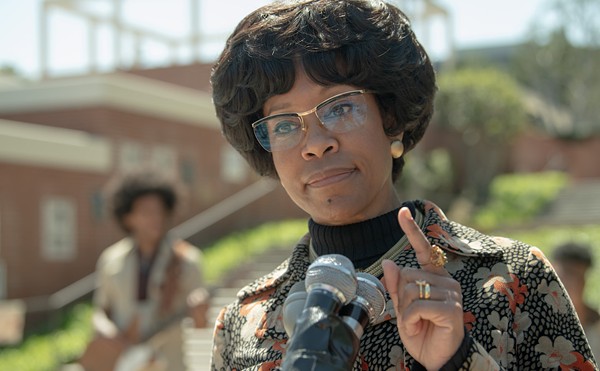Sundance: Eat Through LA With Pulitzer Winner Jonathan Gold

[
{
"name": "GPT - Leaderboard - Inline - Content",
"component": "41932919",
"insertPoint": "5th",
"startingPoint": "3",
"requiredCountToDisplay": "3",
"maxInsertions": 100
}
]
Halfway through Laura Gabbert's documentary City of Gold, a salute to Jonathan Gold, the Pulitzer Prize–winning food critic's brother Mark reveals a dark family secret: Gold grew up devouring iceberg lettuce and orange Jell-O.
Every day, we eat. It's a must. And those meals tell a story: The peanut sauce Grandma invented, the Korean tacos that signify L.A.'s mash-up culture, and even that Jell-O, a shorthand for a childhood in South Central, where Gold's father, a probation officer who dreamed of being an English professor, cared more about filling his sons' heads with high culture than he did filling their bellies with fancy food.
He fed them right. Gold doesn't just judge a black mole — he compares it to sculpture. In his reviews, the merits of a bowl of pho spill over into opinions on punk rock, gentrification, and the American Dream. Food is vital, interpretative and alive. Every small restaurant represents someone's homeland and hope. As Gold tells the camera, “Taco should be a verb.”
Fittingly, Gabbert's doc spends much of its running time in the passenger seat of Gold's green pickup truck watching Los Angeles whiz by. Gold takes the filmmakers on a greatest-hits tour of the restaurants he promoted into phenomenons: Jitlada, Guelaguetza, Meals by Genet, Mariscos Jalisco. Their owners tell her how Gold's reviews changed their lives. And we see how in writing about food, Gold is writing the history of immigration in Los Angeles, from the Salvadorans selling pupusas on Pico Boulevard to the dignified tea-drinking men re-creating Tehran in Westwood.
Gabbert's frequent pit stops to watch restaurateurs fawn over Gold begin to feel like the first act of The Godfather on repeat. But Gold is merely the conduit for the film's real focus: Like his own reviews, City of Gold is a love letter to L.A. From that passenger seat, it admires everyone in town: the skateboarder pulling two giant poodles, the old man on a curb with a guitar, the families crossing the street for a bowl of caldo. From my stiff movie theater seat in Park City, I would have traded twenty buckets of popcorn for one bite of Guelaguetza's barbacoa tacos and a sunny stroll down Olympic Boulevard.
The documentary blazes through Gold's work habits. Though he gave up on anonymity, he still uses burner phones when making reservations. “The fat man's version of The Bourne Identity,” he jokes. Gold reads so much that stacks of hardcovers fill up half his staircase. Before writing a piece on Chengdu Taste, he cordons his MacBook with volumes on China and studies Chengdu province on Google Maps. He muses that it's so landlocked, they must not eat much fish. He's a researcher and a procrastinator. His editor at the Los Angeles Times groans that getting Gold to finish a piece takes “psychotic harassment,” and Gabbert cuts to Gold refusing to answer his phone.
If anything, City of Gold could use a dash more Jonathan Gold. Only toward the end does it reveal he grew up in South Central, where his earliest memories were tanks growling down the streets during the Watts riots. At twelve, he was a cello prodigy. At twenty he was grinding the cello in a punk band, and soon met his wife, Laurie Ochoa, at the LA Weekly when she was an intern and he a proofreader. Twenty-five years of marriage later, she's still his favorite taco truck date. And despite the last decade of accolades, he remains punk at heart, sniggering at a Vietnamese joint named Pho Kim.
One of the film's funniest scenes is of Gold's brother Mark, an environmentalist, taking him to task for supporting sushi restaurants that sell bluefin tuna. “Jonathan is eating everything I'm trying to save,” he sighs, though Mark is grateful his brother decried shark fin soup. Yet City of Gold's most resonant moment is Gold walking through an art museum with his son and daughter, passing on his father's love of culture to the next generation. When his boy asks why a figurine doesn't have eyes, Gold explains that sometimes the facts of a portrait aren't the priority — a philosophy his reviews serve up with every plate.





